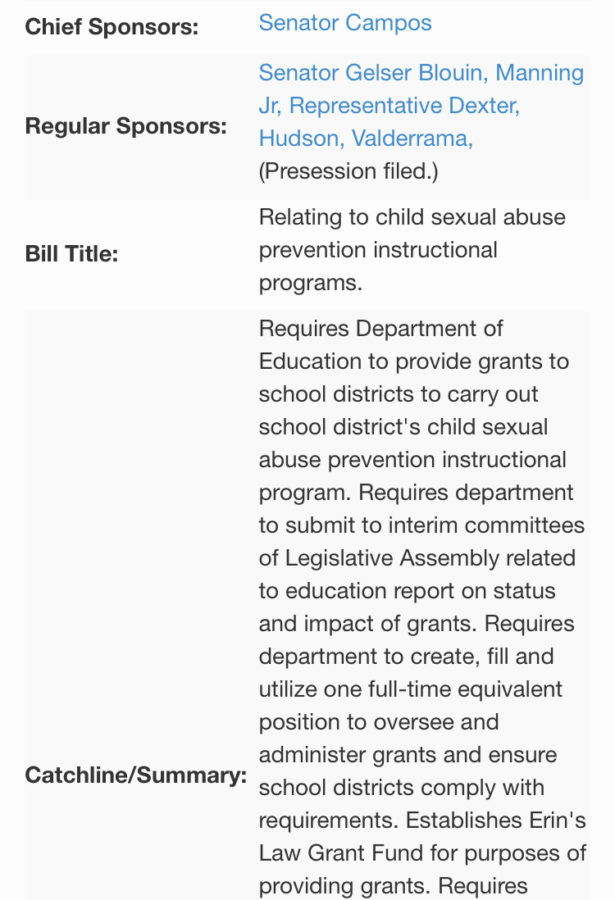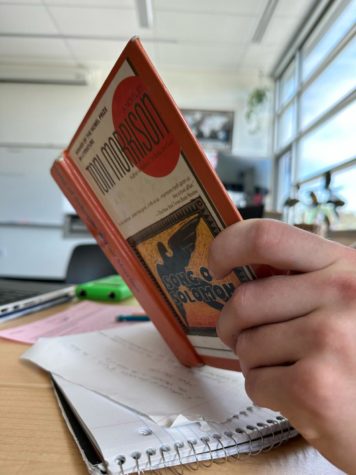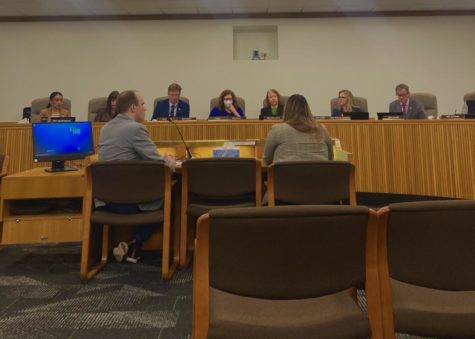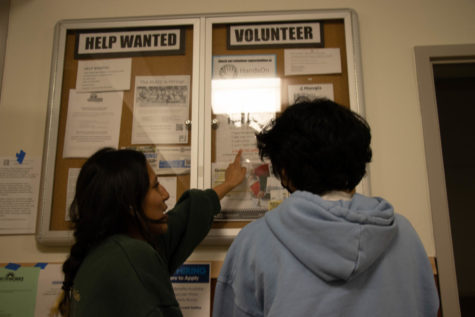A student-led effort against sexual harassment
April 26, 2023
One of the most prominent legal protections introduced was entirely a youth-led effort working to confront sexual violence, and youth interpersonal violence; Senator Wlnsvey Campos (D- 18) introduced partner bills SB 604 (Erins Law Fund) and SB 605 (affirmative protection for youth sexting). Proponents of this bill are pointing to the 2019 study conducted by the Oregon Healthy Teens Survey State of Oregon Report, which found that by the 11th grade, one in ten female students and 14% of transgender and nonbinary have reported being sexually assaulted. Oregon also ranks number one in the number of sex offenders per 100,000 people.
Until this new push for legislation, Erin’s Law lessons have been widely unregulated and unfunded, which had inhibited schools across Oregon to carry out the lessons as initially intended. In an interview with an anonymous student about the implementation of the lessons, they said that, “the environment in which it was taught was just completely wrong”.
The second bill in the coalition, SB 605, is more commonly known as the Youth Interpersonal Bill, with many students concerned about the legal repercussions of experimental, consensual, and non-coercive sexting (non-aggravated) sexting. Under current Oregon law, a District Attorney can prosecute minors consensually distributing sexually explicit material and they are subject to a Class B felony, which is punishable by up to 10 years in prison, a fine of up to $250,000. There is currently no distinction made between minor experimental sexting and aggravated sexting. Therefore, if minors’ explicit images are leaked, they are less likely to come forward knowing that they can be subject to felony charges.
In a 2022 meta-analysis conducted by the Cyberbullying research center stated that between 25% and 60% of adolescents have engaged in sexting behaviors, and the actual statistic might increase due to the number of students with access to technology.
Gabi Cohen has been heavily involved in leading the Youth Interpersonal Violence Coalition. Cohen serves as one of the Youth Directors of the Youth Interpersonal Violence Prevention Coalition, alongside four other student leaders from the Portland metro area. Her passion for this initiative came out of her experience in middle school health, where instead of being taught about sexting in a usual curriculum, her class had a guest speaker from the local police department saying that sexting was a felony.
Cohen writes; “As I grew up, I started to see the ramifications of this; teens were getting their explicit images leaked left and right, and felt uncomfortable seeking adult help in the face of broader criminal punishments … the law had to be updated to reflect the realities of teenage psychosexual development in the digital age.”
There has been backlash to this bill, from parents to district attorneys across the state, however Cohen and Tran don’t underestimate the power of youth voice in changing the perspective of lawmakers. One of the largest threats to this bill, Cohen writes, is, “adults are still uncomfortable with the topic of teen sexting, despite its prevalence … the general political landscape surrounding sex education has been shaky in the face of rising school parent-choice movements, but if there is a perspective that adults often value the most, it is those of youth.”
However, this youth-led initiative depends on youth action. Although the hearing has not been scheduled for either bill, there are many action items that Cohen had discussed.
Cohen states; “Students can support these efforts by talking to their friends, emailing/calling your elected officials, and sending in testimonies.”
The legislature is working on rescheduling the bills for a hearing, but until then, there is a large grassroots organizing effort from various different community groups that are reaching out to youth for help and guidance. Collective action had proved to be helpful in the face of opposition, and to gain traction for bills.



















